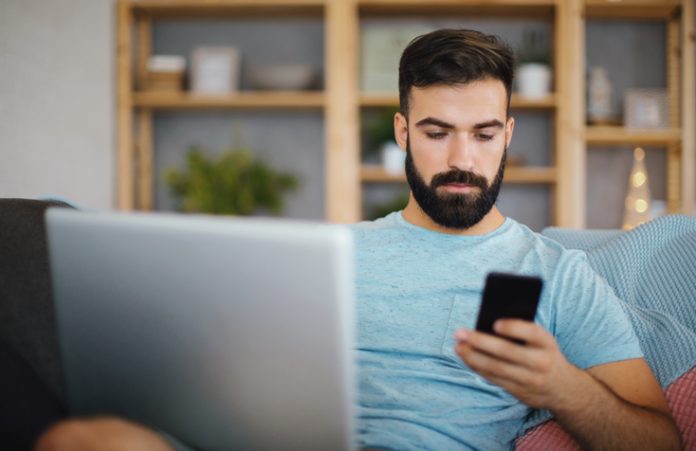In a world dominated by screens is excessive screen time impacting our eyesight? Evidence shows that the incidence of myopia (short-sightedness) is rising. Optometrists worldwide have also noted a myopia epidemic among children.
“There is a genetic component to developing myopia, but we know the prevalence has increased dramatically in recent decades,” says Professor Isabelle Jalbert from the School of Optometry and Vision Science, UNSW Medicine & Health. “It’s too rapid to be explained by genetics alone; we need to look at what’s changed in our environment, and it’s highly likely that lots of screen time is a risk factor for at least some development of short-sightedness in children.”
In myopia the eyeball develops faster than the normal rate and becomes too long, causing distance to become blurry.
Modern treatments like orthokeratology, where people insert contact lenses to reshape the eyeball at night temporarily, can help to correct the eyeball’s shape,” Prof. Jalbert says. “But it doesn’t reverse myopia – it can only help slow the progression.”
“Once the eyeball has grown too much, it can’t shrink back, so while we may be able to help correct vision, there remains a higher lifetime risk of developing serious eye conditions later in life,” Prof. Jalbert says. “So, as always, prevention is the best strategy where possible.”
Even in the short term, Prof. Jalbert says screens can cause strain to our eyes and induce symptoms of dry and tired eyes relatively quickly. A recent study by Prof. Jalbert found that viewing a phone screen can reduce blinking rates within the first minute in children and result in symptoms of dry eye.
“Watching a screen halved blink rates among participants, which is one of the main mechanisms for lubricating and protecting the eye,” Prof. Jalbert says. “That doesn’t mean there is a link to developing an eye condition later on, but we’re concerned about potential long-term impacts as people spend more and more time on their devices.”
Prof. Jalbert says there are some preventative measures we can take to minimise the impact of digital screens on our eyes. That includes limiting daily screen time per World Health Organisation guidelines – less than two hours per day for school-age children, and no screen time at all for kids under 2.
“Unfortunately, researchers have found that very few children are likely meeting those recommendations daily,” Prof. Jalbert says.
Instead, Prof. Jalbert says we should focus on getting people, particularly kids, to spend more time outdoors, which reduces the likelihood of developing myopia. However, time outdoors won’t necessarily slow the progression of myopia once it sets in.
“The more time you spend outdoors looking into the distance and wide-open spaces, the less time you spend doing near work or looking at a screen,” Prof. Jalbert says. “It doesn’t have to be all at once; it can be at lunchtime or walking to and from school or the office.
“Just remember to also protect your eyes from the sunlight by wearing sunglasses and a hat.”
For adults who use screens all day at work, Prof. Jalbert says following ergonomic recommendations is essential. A proper workstation setup with desktop screens at the appropriate distance and height, adequate natural lighting and regular breaks can all help reduce eye strain.
“Optometrists often talk about the 20-20-20 rule,” Prof. Jalbert says. “That means every 20 minutes, try to give your eyes a break from the screen and look in the distance 20 metres away for at least 20 seconds.”
It’s easy to forget, but Prof. Jalbert says it’s important to schedule regular eye check-ups.
Optometrists generally recommend an eye examination every two years. For vulnerable populations, including those with underlying conditions like diabetes and autoimmune diseases, more frequent check-ups are advised.
“It is not realistic to tell people not to use screens at all, but we can do better when it comes to being more mindful about how screens might impact our eye health and managing the risks day-to-day,” Prof. Jalbert says.










